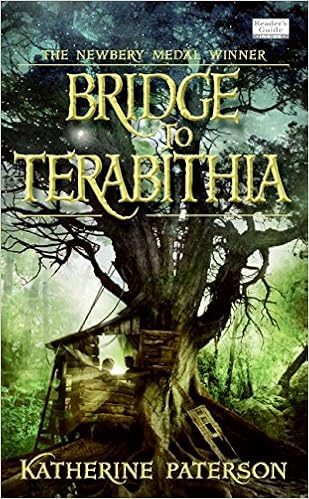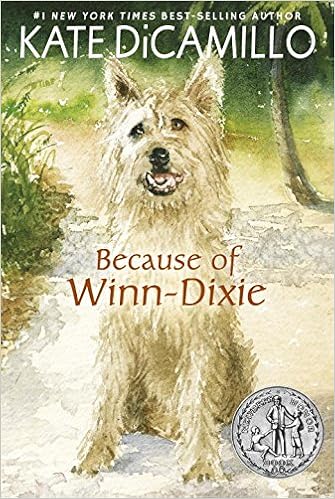 Reading groups and book clubs have always intrigued me. While I understand the pull of talking about books with other people (after all, I do it all day) reading to me has always been a more solitary pursuit. Maybe it’s a job hazard: After talking endlessly about a manuscript, art, the cover, the price and hearing opinions from everyone from design, sales, marketing, and publicity on everything I just want to sit down and read a good story and not care what anyone else thinks about it. What does intrigue me, though, are book clubs for kids, because adding a social component to reading can inspire a lot of kids who may not otherwise want to plunk themselves down on the sofa and read by themselves.
Reading groups and book clubs have always intrigued me. While I understand the pull of talking about books with other people (after all, I do it all day) reading to me has always been a more solitary pursuit. Maybe it’s a job hazard: After talking endlessly about a manuscript, art, the cover, the price and hearing opinions from everyone from design, sales, marketing, and publicity on everything I just want to sit down and read a good story and not care what anyone else thinks about it. What does intrigue me, though, are book clubs for kids, because adding a social component to reading can inspire a lot of kids who may not otherwise want to plunk themselves down on the sofa and read by themselves.
I have been reading about and hearing about more and more kids (and by kids I mean those who are reading independently) for some time. I’m intimidated as a parent at some of the Pinterest-worthy postings of those meetings with elaborate themes and favors, but there are a lot of ways to pull off a book club that don’t involve carving a stamp of the main character out of a potato.
Kids are susceptible to peer pressure. (We know this.) But when the pressure is used for good it can be motivating. So if all of Olivia’s friends are reading a book and talking about it even if she’s not a super-engaged reader she may feel left out unless she is reading it, too. As always when forming some kind of group or club, I’d like to remind people to be inclusive. I always feel horrible for the one kid who gets left out (which explains why I’m the parent who ends up with 18 kids at every birthday party). Encourage your child to talk up the group and see who wants in. You never know what someone will contribute to the conversation and different perspectives make for a more enriching and interesting discussion. If you have a larger group you can always do the meetings at a library, a pizza place or, depending on the weather, a park instead of someone’s home.
Inclusion counts in terms of selecting the book, too. Try to select a book that has a lower priced paperback edition or better yet is available at the library. Many families can’t afford to buy a new hardcover.
A mix of reading levels is OK. While it’s ideal to have a group of kids who are within the range of each other (i.e. they can all comfortably read the book) some kids will struggle a bit while some will breeze through. That’s ok in my book. Just as on your soccer team there are kids of different levels they’ll all be able to contribute something to the larger group. You probably don’t want to choose a book that is a reach for all of the kids; frustrating them isn’t going to go well. So lay off the Faulkner.
Meeting every 4-6 weeks is optimal. Give kids enough time to finish the book but don’t schedule the meetings so far apart that they forget what they read. Part of what will make a great group is harnessing enthusiasm the kids will have for a particular story.
Go with a theme. I like the idea of making these meetings celebratory. If you are reading Holes maybe you serve…doughnut holes? Maybe the kids dress up from the period of the book or you decorate with a theme (Hogwarts anyone?). If you are reading Charlotte’s Web you could hang cotton or string webs around the room.
This is not school. Don’t test, drill, or hand out worksheets. Ideally the conversation should be organic and at ease, as if the kids were discussing the latest movie or television show. Resist the urge to turn it into a pop quiz which is a guaranteed buzz kill.
Prompt when needed. Depending on the age of your group some kids will need help getting started. A parent (or older sibling) can act as moderator, starting the conversation with some prompts then stepping away. Or you could turn it into a game; at each seat place a piece of paper with a question. Each participant can either answer that question or trade it to ask someone else to answer it; keep going through them until everyone has a turn to speak.
Let the kids choose the books they read. Let each member take a turn selecting the book for the next meeting. Part of being in a book club is sharing recommendations. Encourage kids to browse a bookstore or library to spark some ideas. If you get stuck making recommendations you can always ask your librarian or your child’s teacher for suggestions.
Actually, this sounds like fun. I might have to reconsider my stance on book clubs by reminding myself that some people talk about the stories and characters, not about the fact that the very pretty font might actually be illegible on a cover. Now that’s novel.
A few suggestions for books that might be great for Book Club reading for an 8-12 audience:
×

Bridge to Terabithia
by Katherine Paterson
This Newbery Medal-winning novel by bestselling author Katherine Paterson is a modern classic of friendship and loss.



×

Walk Two Moons
by Sharon Creech
In her own singularly beautiful style, Newbery Medal winner Sharon Creech intricately weaves together two tales, one funny, one bittersweet, to create a heartwarming, compelling, and utterly moving story of love, loss, and the complexity of human emotion.



×

Because of Winn-Dixie
by Kate DiCamillo
One summer’s day, ten-year-old India Opal Buloni goes down to the local supermarket for some groceries – and comes home with a dog. But Winn-Dixie is no ordinary dog. It’s because of Winn-Dixie that Opal begins to make friends. And it’s because of Winn-Dixie that she finally dares to ask her father about her mother, who left when Opal was three. In fact, as Opal admits, just about everything that happens that summer is because of Winn-Dixie.



×

Maniac Magee
by Jerry Spinelli
Jeffrey Lionel “Maniac” Magee might have lived a normal life if a freak accident hadn’t made him an orphan. After living with his unhappy and uptight aunt and uncle for eight years, he decides to run–and not just run away, but run. This is where the myth of Maniac Magee begins, as he changes the lives of a racially divided small town with his amazing and legendary feats.



The post (Book)Clubbing for Kids appeared first on Tips on Life and Love.
Leave a Reply
You must be logged in to post a comment.